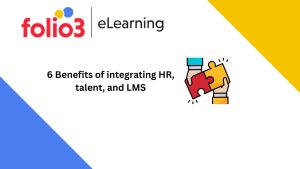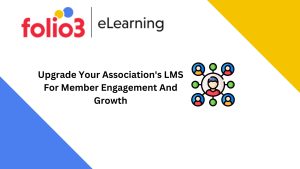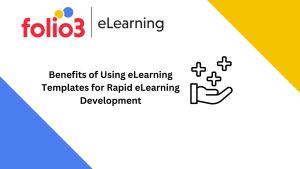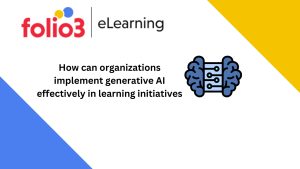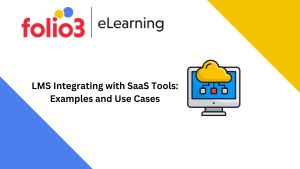
We must improve our analytical reasoning skills as the speed, intricacy, and amount of change grow; eLearning development is the best way to do so. We may dissect complex problems to their smallest components and study them from multiple perspectives to discover the best feasible solution using analytical reasoning.
Be Analytical, Be Precise
As humans, we must improve our cognitive abilities. As a Learning & Development leader, one of your key tasks is to guarantee that the workforce is empowered to build the four skills required to thrive in 2030. A sequence of 10 articles titled “eLearning Abilities 2030” addresses the skills needed to simplify the task. Our literature in eLearning development focuses on the fourth in the “eLearning Skills 2030” series, which is Analytical Thinking, including what it is, why it’s important, and how to improve it.
Defining Analytical Reasoning
Analytical reasoning can solve a big problem by breaking it down into smaller sections. The word “analytical” has a Greek derivation that means “to untie or solve.” Recognizing the interconnections between pieces, paying enough attention to the series of events, sketching a process, observing for commonalities and contrasts, and understanding the difference are all part of analytical reasoning. eLearning development for Analytical Reasoning allows you to break down complexity into its smallest components and study them from multiple angles to discover the optimal solution.
Need Of Analytical Reasoning: Change In All Things Is Sweet
Every role nowadays necessitates analytical reasoning, which will remain a core skill in 2030 and beyond. Analytical thinking can help you enhance how you interact, settle issues, and manage crises, in addition to allowing you to examine difficult and unexpected problems and come up with answers. Like the creation of the Pfizer vaccine, if it weren’t the analytical reasoning at the time, we would have the vaccine created in nine months to slow down the pandemic.
Getting The Pragmatics Of Analytical Reasoning Skills Stronger
You must practice growing your brain, just as varied workouts, reps, and sets help users strengthen multiple muscle areas in the gym. Reading extensively, playing mental exercises, trying something new every day, supporting overall public speaking skills, interacting with data, and asking excellent questions are all practical and effective strategies of eLearning development to increase your analytical skills.
-
Extensive Read
Reading more books keeps your mind active and attentive. You can become a book club member or visit your local library. Please choose a subject that intrigues you and read three books by multiple writers. This course will enable users to see an issue from several angles, encourage their minds to think in new ways and open their brains to fresh, diverse perspectives.
-
Play Mental Exercises/Games
Chess has been one of my favorite games since it involves critical thinking. I usually play against the program, and I’m overjoyed when I finally beat it after multiple attempts. Brain games like chess, sudoku, and crossword puzzles can be both amusing and advantageous to analytical reasoning.
-
Acquisition Of New Learning
While it may seem self-evident, the more you learn, the better your analytical abilities will get. The more knowledge you acquire, the more prepared users would be to solve difficulties and overcome challenges. Today, there are a plethora of free online learning opportunities, which would include online learning, microlearning modules, TED talks, digital books, and carefully crafted learning compilations like Masterclass, where some of the best minds in sporting events, styling, writing, music, and more share their knowledge.
-
Sharpen The Oratory Skills
Joining a Toastmasters group, a debating club, or signing up to give a TED talk are great methods to develop your public speaking skills. These settings allow you to collaborate with others to exchange ideas, solve problems, evaluate data, and consider alternative points of view. Presenting thoughts and listening to others might help you broaden your perspective and consider different points of view.
-
Reviewing & Analyzing Information
Analyzing and reviewing data can assist you in identifying relevant patterns in your future growth, financial results, and strategies. To acquaint yourself with data analytics, Harvard Business School’s Catherine Cote recommends obtaining simulated data sets and slicing and dicing them in Excel. Data analysis can help you improve your analytical reasoning and problem-solving skills, allowing us to make informed decisions and achieve change in your company.
-
Be Curious, Ask!
Asking inquiries can lead to fresh discoveries and an increase in the number of individuals who like you. Answering interesting questions is indeed an art form that incorporates factors such as text, tone, and framing. Employing open-ended questions that begin with “how,” “why,” or “what” as a rule of thumb can elicit more expansive replies, stimulate follow-up questions, and encourage more long conversations, all of which can help you learn more and enhance your analytical skills.
I am wrapping it Up!
eLearning development polishes your practical understanding of the world with more precision. Analyzing a topic means you’ve gained a thorough comprehension and may now concentrate on anything in greater depth. Those with strong analytical reasoning quickly assess a situation, problem, or issue and frequently work well in a collaborative context to achieve goals. Using analytical skills in your daily work demonstrates that you are a trustworthy and logical thinker who can make decisions based on relevant data.
Analytical reasoning skills are vital because they help you think in new ways and solve problems effectively, making data-driven decisions about actions to take and where to invest resources. You can design and implement large alternatives by analyzing challenges and breaking them into smaller components. Analytical reasoning is a necessary skill in every situation and at every level. As a frontrunner, you may develop this capacity on your own time and foster it in the next generation of leaders so that they can succeed in 2030 and beyond.

